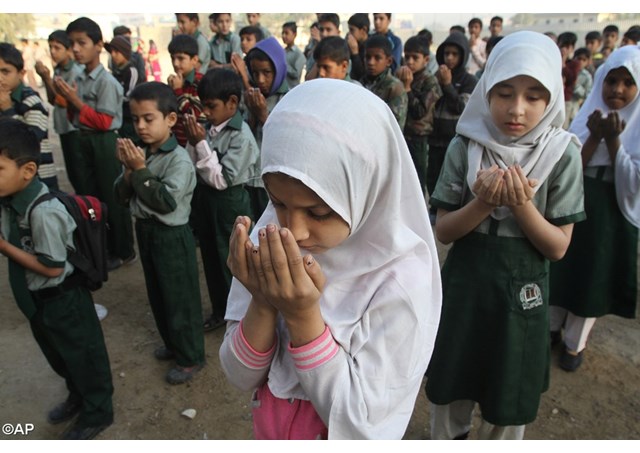
Pakistan: Islamic parties preventing school curricula revision

Pakistan’s Islamic parties are preventing the revision of school curricula and are spreading hatred and stereotypes against religious minorities, particularly in Khyber Pakhtunkhwa province, this according to a study carried out by the National Commission for Justice and Peace (NCJP) of the Catholic Bishops' Conference of Pakistan.
The research, which covers the last five years, found that Islamic religious parties have become a pressure group strong enough to prevent education authorities from revising school programmes for fear of retaliation and protests.
The study notes that Urdu-language history, social studies and Islamic studies are full of biased ideas about minorities.
In the province of Khyber Pakhtunkhwa, hateful content is ten per cent higher than in other provinces. The responsibility for this lies mostly with the Ministry of Education, which is led by a member of Pakistan Tehreek-e-Insaf.
Although the party portrays itself as liberal, it has failed to set priorities and show political will according to the NCJP. In fact, the provincial government itself is afraid of the opposition and backlash from religious parties.
School material tends to promote a sense of deprivation and an inferiority complex among minority students, increasing school dropout. Texts with hateful content also promote the radicalisation of young people, who end up embracing extremism.
"Khyber Pakhtunkhwa education is in the hands of the extreme right," said Aila Gill, an activist and NCJP researcher.
By contrast, changes have been implemented in other provinces, like Punjab and Sindh. For example, in one textbook, “there is a chapter dedicated to Abdul Sattar Edhi;” a humanitarian described as Pakistan’s Mother Teresa who died last July; in another, there are “short stories about terrorism and anti-terrorism”.
NCJP has been determined to focus on the issue of biased curriculum & reforms in education policy since 2006 when the education policy was framed and then approved in September 2009.
The Commission is deeply concerned on the issue of religious biases in education system of Pakistan. The whole arrangement of curriculum in textbooks is visibly discriminatory against religious minorities which is contradictory to Article 20, 22 and 25 of the Constitution of Pakistan 1973, hampering religious freedom and equality of citizens.
While the campaign has achieved some success, the commission continues to work with government and other stakeholders with an aim to build a more tolerant and peaceful Nation.
Although “the provinces are still reluctant to remove existing biases, they have at least included new material, like a chapter on the role played by women in the development of the country in the Pakistan movement.”
In these provinces, “Governments have also added a section devoted to the social status of women and their role as citizens, presenting prominent figures like (Nobel laureate) Malala Yousafzai.”
Amelia Tariq, a Christian student at Punjab University, said that when she was a child she "was mocked by students from the Muslim majority, who questioned my identity. Belonging to a minority makes you feel isolated ".
In her view, it is the government’s responsibility "to eliminate discriminatory elements from textbooks and ensure the protection of minority students. Programmes should promote harmony, tolerance, unity and nationalism, as the Fathers of the Nation did."
(Source: AsiaNews)
| All the contents on this site are copyrighted ©. |


